|
5/6/2024 0 Comments Interview with Krisha Gandhi of Cranbrook Education Campus and Tom Pether of East Allington Primary School "I think if the Group could guide and inform educators on all levels to a greater awareness of the ideas behind inclusion to which we subscribe and provide information, evidence and actions, then this would be very helpful to guide people to look at themselves and to say, not in a pejorative way, but in a constructive, supportive and collaborative way.” For our June interview, we spoke to Krisha Gandhi and Tom Pether, joint Chairs of our SWIFT DEI Partnership Group formed this academic year to support SWIFT’s ongoing commitment to Diversity, Equity and Inclusion (DEI). The group meet each half term and will be presenting at the Summer Conference on Thursday 13 June 2024. Krisha Kay Gandhi is Primary Headteacher and Senior Deputy Head of Campus at Cranbrook Education Campus, Exeter; having previously served as Director of Education and Primary Headteacher at Bishkek International IB World School in Kyrgyzstan in Central Asia whilst also supporting overseas school inspections in the Middle East. Krisha is a proud linguist having studied Mandarin Chinese at the School of Oriental and African Studies and she also learned Spanish and Russian to support the communities with whom she has worked. With an MA in Educational Leadership and Policy and a Master's in Business Administration, Krisha is keen to grow leaders who understand the bigger picture of school leadership and the transformational impact this can have. Tom has been Headteacher of Allington Primary School for the past eight years and as well as teaching all subjects, Tom is the Curriculum Design Lead for History for Multi Academy Trust, Education South West. Tom began his teaching career as a teacher before his role as Headteacher at Blackawton Primary until his current position at Allington. Tom’s love of History has led to his involvement with SWIFT Teacher Training as History Lead and he previously undertook a research project for the former NCSL and in the wider community, is supporting visitor attraction, Box Plymouth. At the end of this term, Tom is working with Sarah Frame to host a conference on sustainability and climate change. 1. What number one action/support for Diversity, Equity and Inclusion would you like to see across Schools and Trusts? Tom: I think the first thing is an acknowledgement that it is more nuanced, complex and involved than ticking a box and saying we are diverse and I think people need to see that there is more action that needs to be taken in terms of actually making change. It is not something that is going to happen by an external organisation giving you some suggestions. Nor is it going to be done by Government. It needs to be done by organisations who scrutinise very closely and question their own behaviours to make some changes. So, I think the first action would be for people to say, this is complicated, we are not good enough and then they will hopefully take some more actions because I do not think we are always good enough down in the South West, but we need to be in that place first so that we can move forward. Krisha: I love how Tom uses 'we' to discuss action in this area. I think this is one of the important nuances of effective Diversity, Equity and Inclusion (DEI) work. Since this is an area, we are all working to improve, there is a great opportunity for collaboration. I would like to see leaders collectively set the tone for the importance of DEI in our learning and working environments across all schools, trusts, and organisations in the region. By having a group of Trustees, Directors, Heads, or Governors commit to reflecting on our biases, examining our language, and evaluating the inclusiveness of our practices, we can create more considerate schools and workplaces. From my experience, as a British South Asian school leader, my sense of belonging definitely increases when I know I am working with a team who are not only willing to, but keen to, hear all voices in their community. 2. Have you experienced any barriers to Diversity, Equality and Inclusion in your professional lives as leaders and teachers? If so, how have you overcome this/these barrier (s)? Tom: Well, for a start I am a white middle class male and I am the most privileged person on the planet in that context, so I have not experienced any barriers. But I think the thing that I have learned over time is to be able to see my white middle class male privilege and to see it for what it is and to take note that it is part of an unfair system, and I should not have it. Krisha: Having come from a working-class background, and being a female, person of colour who is also gay; discrimination has been a constant feature of my lived experience - as a teacher, leader and in my day-to-day life too. Rather than discussing the barriers in specific, it is important to share the support mechanisms and tools that allow me to better cope. I think it is important to acknowledge that the barriers do not often feel overcome, but rather, there has been a resilient persistence to survive within them. The tools that have helped me are:
3. What do you hope to gain personally from your involvement with the SWIFT DEI Partnership Group?
Tom: Once again, I think for me personally, it is, challenging, as I said before, my white middle class, male preconceptions of the world; which I think is healthy for me. It is also getting me to look at myself closer and to question my ethics, beliefs and actions. It is really fascinating working with different intelligent people in the Group who have wonderful ideas about how to change things and I find the idea of change, especially in terms of equity and justice, very energising. Plus, I believe that if we are going to leave this world a better place, we need to be active in that change process. Krisha: I agree with Tom! I would summarise the ideal goal or gain to be supportive connections and a sense of belonging. 4. What do you believe will be the most beneficial role of the SWIFT DEI Partnership Group? Tom: I think if the Group could guide and inform educators on all levels to a greater awareness of the ideas behind inclusion to which we subscribe and provide information, evidence and actions, then this would be very helpful to guide people to look at themselves and to say, not in a pejorative way, but in a constructive, supportive and collaborative way, because nobody likes someone who is going to browbeat them and tell them off. But rather in a collaborative and informative way. Krisha: I think it is important we are a group that listens. This is something not everyone will experience, yet among their own colleagues in order to hear diverse viewpoints across our region will be essential. Secondly, I would say we need to be a convening power i.e. looking at how we can support the provision of high-quality training to different pockets of our region or considering how we can share best practice across our schools and communities. 5. How do you envisage the evolution of Diversity, Equity and Inclusion generally in education over the next ten years? Tom: I would see it hopefully as something, particularly in the South West, where we are actively taking steps to catch up with the demographic of this country in teacher training, in the way that we approach our curriculum, and work with children ultimately to support them to grow up in a world that is more inclusive, less binary, less divisive and less vulnerable to the kinds of people who seem to be getting into power all over the world. Krisha: In reality, our work in DEI will not be complete in 10 years, so we have to think about what is achievable in that time which is not happening now, which would be a step in the right direction. For me, this - especially in the South West - would be a developed and critical understanding of the intersectional experiences between and across all protected characteristics whilst also bringing class, and a focus on working class experiences, into the conversation. If done well, I believe this could result in increased representation in leadership roles, earlier identification and understanding of the core issues affecting vulnerable children, young people and families, and a positive trajectory from saying the right things to doing the right things. Finally, I do believe that, in 10 years, we have the power to create an environment in which people from diverse and vulnerable backgrounds can demonstrably see and access aspirational choice and opportunity. We thank Krisha and Tom for their thoughtful interview and continued leadership of the SWIFT DEI Partnership Group. Interview by Jude Owens, SWIFT Executive Assistant
0 Comments
As Mathematicians it adds up that Laura Clitheroe and David Hick provide double the benefits as joint CODE Maths Hub Leads. Both have been teaching for around 20 years and Laura recently took up the helm as the Hub Lead for three days last September, supported by David one day a week. Laura has been teaching for most of her career at Montpelier Primary School in Plymouth and has been Trust-wide Maths Lead for the Greenshaw Learning Trust, as well as supporting as Maths SLE. David is currently in his third year as Headteacher of Chacewater School, part of Truro Penwith Academy Trust, having started his career teaching at St Ives Junior School, before moving to Threemilestone School, where he was Assessment Lead, Maths Lead and Deputy Head, plus a short spell as Acting Head. David leads Maths for the Trust and has been leading the CODE Maths Hubs for about five years. Working together as CODE Maths Leads allows more capacity for Laura and David due to the evolving work. 1. What do you consider to be the main benefits for Maths CODE Hubs in working with SWIFT as your local Teaching School Hubs to date? Firstly, collaboration in working with system leaders, and sharing their knowledge and expertise; as well as access toother educational establishments, different voices and different people; which in turn gives access to other colleagues that we might not otherwise have access to within the SWIFT network. Secondly, access to other opportunities. For example, the facilitation of the National Professional Qualification in Leading Primary Maths (NPQLPM); which has been a very successful joint project with SWIFT. We have been able to signpost some of our Assistant Maths Leads to facilitate the NPQ through SWIFT, which is obviously great professional development for them and a great link with SWIFT. So, we are enjoying our mutually beneficial working together. But we are also able to have some say in the development of future teachers through the Teaching School Hubs which is important to us. 2. How has this benefitted you and your teams professionally and personally? Personally, for me (Laura), having recently started in the role, the support and contacts within SWIFT from expanded networks has been beneficial in enabling me to develop continually the reach and impact of the Maths Hubs across our region. Professionally (for Dave as he has been in the role for longer), it comes back to that professional growth and access and intelligence gathering which again, allows the Hubs to expand their reach. When you are working within the network of Teaching School Hubs, it is about feeding into that access, which in turn gives the people we are working with access to research-lead CPD, and we like to think this is what we are all about at CODE Maths Hubs. I think the way education is moving now we should be looking at education and research to support professional growth and start to implement this intent in order to see the impact. 3. What do you believe to be the most important role generally for Curriculum Hubs in supporting schools? I think the most important role for Curriculum Hubs is about developing teachers and educators who can deliver the very best outcomes for the children and students they are teaching. It is important to look at how we can take some of the educational research and distil it into best practice for teachers and in such a way that teachers, who might not have the time to benefit from the training opportunities as we might wish, can put it into practice; which again, is only going to be a good thing for children and students. We like to think of it as equitable access to high-quality professional development backed by research, and as Maths Hubs, we can help to provide that level of development from a variety of programmes, such as our Subject Knowledge courses for Teaching Assistants covering Maths lessons at primary, and for non-specialists in secondary. These are two of our most popular courses because we all know that there is a huge demand, not least because of the recruitment crisis and so many non-specialists are covering Maths lessons. Because the Maths Hubs provide fully funded and research-backed professional development opportunities, it is a win-win situation for schools and colleagues and our role as Maths Hubs is about recognising and responding to the current challenges in education. It would be counterintuitive to have a static view of education and with us both working within the profession, we are very much in contact and working alongside local leaders and benefit from this close-up insight into the educational landscape at primary, secondary and post-16 and we understand the challenges and how Maths Hubs can support better and continue to develop our support in a way that works. There are also parallels to other Curriculum Hubs and by understanding the national picture we can fit that into our understanding of the local context, which is important in serving our local communities. Obviously, our region is different contextually to London; but some of the national aims and objectives are going to be the same, and we need to think about how to marry together into the local context. 4. What one thing (if possible) would you change to enhance your support? Capacity, time and money! This relates back to what we were saying about the fact that it is no use having a static offer or a static view of how things should be as idealists, because we know that in reality this may not be possible/practicable. This is something that we are grappling with more and more despite the funding being there as schools understandably want teachers to be in classrooms. But we are keen to promote schools to see the bigger picture of professional development within their own school and as part of retaining teachers as it gives teachers something beyond their own school, and enables them to develop whilst retaining them in the profession. We believe in our strong and robust offer and the longevity of the programmes in schools from their sustained engagement and we know that this will have a positive impact. We are keen to help remove any barriers to facilitate what Laura called equitable access for all colleagues to ensure equitable balance that gives capacity to teachers so that they can be actively engaged in our Hub programmes. We understand this can be very challenging, particularly in some sectors where the funding does not make a difference because if you have not got a Teacher of Maths in your secondary school then the money does not make a difference. 5. What would you like to see more of in your future working partnership with SWIFT? Continued collaboration across the wider network as we have previously mentioned. Growing these links and working with SWIFT to continue to share our message about our Maths provision so that everyone understands what CODE Maths is about and our offer and how people can engage with us in a variety of different ways. We would also be keen to develop coordinated links across other Curriculum Hubs through SWIFT; which is important because there are parallels with the English Hubs and there is power in the ability to information and intelligence share. For example, we might be working with schools who potentially need some targeted support in Maths and where some wider teaching and learning support is needed, which we can fit into the remit of other Curriculum Hubs and the Teaching School Hubs can support and signpost to schools. It is back to effective system leadership in schools and Multi Academy Trusts and cross-school and Teaching School Hubs can help to magnify this working together that ultimately supports school improvement. More Information The CODE Maths Hub offers sustained and ongoing engagement with schools over the academic year to facilitate professional dialogue within continuing professional development. They support Network Collaborative Projects (NCPs) to develop a shared understanding and teaching for mastery; as well as Subject Knowledge of Teaching Mathematics courses. The CODE Maths Hub are currently recruiting for Mastering Number at Key Stage 1 for 2024 - 2025; as well as welcoming applications from teachers for their Early Years, Primary and Secondary Mastery Specialist cohorts for 2024 - 2025. You can read about Mastering Number at Key Stages 1 and 2 in the 2023 Coordinating Mathematical Success: the Mathematics Subject Report. Keep in Contact
The Hub will be recruiting after Easter for 2024 - 2025 and are always keen for schools to start their Teaching for Mastery journey, so do get in contact via their socials and subscribe to their mailing list on the link below. 10/1/2024 0 Comments If you were wondering what it's like to be a supply teacher with Exeter Supply PartnershipIf you are considering supply teaching to suit your work/life balance or to refresh your skills before taking on a permanent post, it will be helpful for you to read Katie’s experiences of working for Exeter Supply Partnership (ESP). 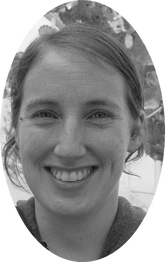 For Katie, education has always played an important role in her life, and after finishing her Master’s in Education and gaining her teaching certificate, she taught fourth grade, and then two years later, second grade in a mountain town in Northern Arizona. After moving from Arizona to England, Katie joined Exeter Supply Partnership in 2018 and was soon offered a temporary contract at a local primary school in Exeter. Katie returned to ESP in 2021 and again was soon snapped up for a short-term contract before returning again in September 2023. Why did you choose to become a supply teacher? After moving to England, I volunteered at a primary school in Exeter to gain experience of working in the classroom over here. The school then advised me to apply to Exeter Supply Partnership so that they could book me for their school as a supply teacher. Why did you choose Exeter Supply Partnership? Because ESP is a not-for-profit organisation and the school, I volunteered with recommended ESP. What is your favourite aspect of being a supply teacher? I have enjoyed working as a primary supply teacher. I love the fact that you can go to different schools and see how they operate, and also gather lots of ideas. I have a note book that I use to record new ideas. I was at a school the other day and the teacher had planned an incredible lesson. I asked the school if I could take the planning sheet with me to use elsewhere as a resource. Supply is also a great way to meet other educators. What are your favourite/most useful resources to use? I have a subscription to Twinkle that I use occasionally and I always take a couple of story books with me that I can use as the basis for a lesson. How do you prepare for your bookings? I always have a look at the school documents ahead of attending such as the behaviour policy, marking policy and safeguarding policy. In my note book I have a section where I ensure I have the start and finish times, the name/s of the Designated Safeguarding Lead and any other useful information. Once I have attended a school, I will add any useful information to my book that could be helpful for my next visit. What approach do you take when you are attending a new school? I will look at the documents and policies for the school. I will also look at the school website, which will often give you a feel for the school and how they operate. Sometimes when you arrive at a school, they may want you to cover a different age group than originally planned, so it is important to always go with a ‘can do’ attitude and an open mind. Would you say supply teaching is an enjoyable/fulfilling experience? Yes, I love it! I like going to new schools and meeting new groups of children. Some people might think that supply teaching is lonely, however I do not find this to be the case as staff in schools are really friendly and I also find that there are very often other ESP teachers working in the same school as me. What advice would you give to a teacher who is new to supply teaching/ considering supply work? I would say that it is different than having your own classroom, so make sure that you are flexible and take every day as a new adventure. If one day does not go so well, give it another go. Always be open for new experiences and your next adventure. How do you manage the uncertainty of supply work and the possibility of not having work on some days? This can be tricky; however, I have been very fortunate in that I have been booked on most of the days that I have wanted to work. On the occasions that I am available for short notice bookings, I get up early so that I am ready for a booking. I always try to have a plan ‘B’ so that if I do not get a booking, I will have something else to do with the rest of my day. Would you recommend ESP to other teachers? If so, why? I could not recommend it highly enough! I am always recommending ESP to others if they are thinking of doing supply teaching. The ESP team have always been the most welcoming and caring people to work with; they take really good care of us and are always so supportive. Exeter Supply Partnership (ESP) is a not-for-profit organisation linking supply teachers and their next job. If you have QTS, a passion for teaching and a desire to move into supply work then ESP are here to help. Perhaps you are newly qualified and looking to gain experience before joining a school full time. Maybe you’re looking to slow down and ease into retirement. Or possibly a parent trying to juggle work with a busy family life. Whatever your reasons may be, supply teaching offers flexibility and variety we we’d be delighted to help match you up with local primary schools. “ESP have become my ‘go to’ first choice for supply be it a last-minute request or planned ahead they couldn’t be easier to contact or more helpful. We can rely on quality teachers at the best rates. I would and regularly do recommend them to teachers and schools alike.” (School) Exeter Supply Partnership is a Community Interest Company set up by the member schools of Exeter Consortium, one of SWIFT's Delivery Partners, who also manage and inform the running of the organisation.
 “I enjoy nurturing partnerships and I am continuously reminded of their importance in every we do.” As we embrace this new year as a time of renewal and revitalisation and as the culmination of the first four-years cycle of Teaching School Hubs, it seemed opportune to check in with our Executive Director, Martin Smith to reflect on his role in leading the Colyton and Kingsbridge Teaching School Hubs, as you will know as SWIFT (South West Institute for Teaching). Martin started his career as a Teacher of History in Herefordshire and became an Advanced Skills Teacher early in his career, working as a Teaching and Learning consultant for Gloucestershire Local Authority. For four years he was Deputy Head of a rural 11 to 18-years school in Herefordshire, before becoming a secondary Headteacher in East Devon for eight years. As the backdrop to his current leadership, Martin led the formation of the Dartmoor Teaching School Alliance and in 2020 he was appointed founding Director of Teaching Schools South West (TSSW) as one of six Department for Education’s test and learn Teaching School Hubs with Kingsbridge Community College the lead school. A year later, with the roll-out of 81 further Teaching School Hubs as national centres of excellence, Martin orchestrated combined of operations with the newly formed Colyton Teaching School Hub, with Colyton Grammar School the lead school to create SWIFT. 1. What did you anticipate from your role of leading the Test and Learn Teaching Schools South West (TSSW)? I anticipated that there was a great opportunity to create a system for schools that was more joined-up with less duplication, and less overload of providers delivering similar programmes. This, of course, was mainly the professional development Early Career Framework (ECF) programme, before the launch of the reformed National Professional Qualifications (NPQ's) and before the Department for Education’s Golden Thread of professional development. My role was to focus on bringing together partners who were experienced in making significant contributions in the area and included the former Teaching School Alliances and Multi Academy Trusts who were emerging onto the scene and growing rapidly. As part of my role, I anticipated bringing together the different components into a coherent partnership framework. 2. What do you believe to be the most important function for Teaching School Hubs and has that changed over the past four years? The most important function is to provide high-quality professional development for teachers and leaders because we know that if teachers and leaders engage in high-quality professional development, it has a positive impact on the quality of what they do in the classroom and the outcomes for young people. Teaching School Hubs also have a key role to play in the teacher recruitment and retention agenda. Recruitment, by improving initial teacher training (ITT) and making it accessible to more people. Retention, in running high-quality Early Career Framework programmes that support new teachers, and inspire them to stay in the profession for longer, and to provide a pathway for more experienced school leaders through the NPQs so that this journey of growing and developing continues beyond the first few years of teaching. Therefore, well trained and supported teachers are more likely to stay in the profession for the longer-term and Teaching School Hubs are making an important contribution to the recruitment and retention of teachers. It is also important to create a coherent and accessible professional development structure for Schools and Trusts. One of the drawbacks of the previous iterations of Teaching Schools was working with a large and disparate number of Teaching School Alliances – along the lines of 14 across Devon, Plymouth and Torbay, all of which were providing their own professional development and initial teacher training and as a Teaching School Hub we wanted to create a clear and accessible marketplace for schools to access high-quality professional development. A clear marketplace incentivises and supports schools to engage in professional development. 3. What has been the most constructive learning point to date in your tenure as Executive Director of SWIFT? It is more of a validation and something that is constantly validated for me is the importance of partnership in building long-term high-quality partnerships based on strong relationships with trust, a genuine collaboration, sharing and a generosity between partners. I enjoy nurturing partnerships and I am continuously reminded of their importance in every we do. 4. What do you find to be the most personally rewarding for you in the role? Personally, I have always enjoyed seeing people flourish in their roles and organisations and knowing that as Teaching School Hubs, we are enabling colleagues across the profession to take on new opportunities. Whether it is to design an ITT curriculum, become an ECF Mentor, lead ECF Mentors or facilitate an NPQ. I think that these opportunities across the partnership are truly inspiring and we know that they can make an important difference to people's professional lives. In addition, we now have a not-insignificant SWIFT Central Team of ten people and it is very gratifying to see them grow and develop as individuals and as a team to embrace challenges and celebrate successes. 5. What would be your vision and hope (s) for the next four years of Teaching School Hubs? If we are successful in our re-designation for the next four years, I think my vision will largely remain the same to create those high-quality pathways for teachers from initial teacher training through to Executive Headship and to continue to develop and ensure that these opportunities are meaningful and relevant. We always want to give schools in the South West the best of regional, national and available evidence. We have always believed very strongly in our vision to give South West leaders the best opportunities available and we are committed to this mission that continues, not least with the exciting opportunity we now have with SWIFT Teacher Training to increase the number of teachers entering the profession across our area. There are many great ITT providers within our region and we want to work alongside those existing providers to support potential trainees with the requisite skills and commitment who wish to get into teaching. I also hope that we can adapt to the changing educational context towards larger Multi Academy Trusts (MATs) and at a practical level, as Teaching School Hubs, we are very keen to be responsive to the needs of growing MATs and offer more personalised approaches to ITT and NPQs that allows them to access the benefits of a national programme, but at the same time put their own Trust stamp on the experience. We thank Martin for his reflections and his continued leadership of SWIFT. Interview by Jude Owens, SWIFT Executive Assistant 1/11/2023 0 Comments Interview with Andy Ogden, Director for CPD and Devon Training School Partnership at Tarka Learning Partnership “Working with SWIFT, I enjoy collaborating and creating high-quality CPD provision that fulfils our desire to do the best for our schools and our children that comes through our programmes.” Proving the benefits of our SWIFT partnership model in motion, Andy Ogden is one of our valued Delivery Partners. Developing people so that they can confidently and expertly carry out their classroom and office roles and benefit from professional and personal fulfilment and ultimately, provide the best education for children is a lifelong passion for Andy. Based at Devon Training School Partnership at Tarka Learning Partnership, Andy has gained nearly 30 years’ expertise and experience in education through a variety of roles, not least - Headteacher, School Improvement Advisor and National Strategy Consultant. He has designed the Subject Leader Apprenticeship for the Tarka Learning Partnership, led the Devon Teaching School Partnership and was previously Director of Devon Primary SCITT. Continuing Professional Development (CPD) at Tarka Learning Partnership is described as providing “inspiration leadership that models and secures outstanding personalised training, professional development and pastoral support.” Working with SWIFT, Andy is hands-on in delivering high-impact CPD training opportunities as a Lead Facilitator for the National Professional Qualifications (NPQs), delivering the Teach First ECT programme and is a key player in the SWIFT Membership Services Team. We asked him to reflect on this positive working relationship. 1. What do you believe to be most important in supporting schools?
Fundamentally, I think it is starting from where schools are and empowering them to do the job that they need to do. Clearly for schools this is making sure that the right environment, the right people, and the right training are in place so that children receive the best education. I believe the role of SWIFT is in supporting schools to do their job in the way that is right for them and their children and communities as a service relationship in understanding the needs of schools, and how best to support them. Schools will then have choices available to them about the way in which they operate and this goes beyond professional development and includes the benefits of collaborative networks. I would also hope that by listening to schools they feel the SWIFT offer is more bespoke to their needs, rather than simply generic training, and they are genuinely supported in their school improvement work. 2. What do you perceive to be the current challenges for schools in North Devon? I think one of the biggest challenges that is probably true of all schools nationally, but particularly for Devon, is our provision for special needs children, and the training of colleagues who work with our most vulnerable children and the need to access services for alternative provision. In North Devon, there is a shortage of specialist provision available exacerbated by funding restrictions and falling roles in some rural areas. Hence, we are having to source a lot of support from within our own schools and settings and make the best of what we have available to us and the importance of working collaboratively. Given our North Devon location, we can feel isolated and sometimes because we are not near some of the major urban centres we need to look and reach outwards to ensure that we are abreast of the best that there is nationally in terms of education. I think we recognise that for a long period of time there has not always been the infrastructure to support North Devon and therefore we have to do a lot of this work ourselves. Therefore, the challenge is how to form partnerships and to create an infrastructure that is sustainable in North Devon and meets our local needs; whilst still recognising that we have a lot to learn beyond North Devon. Linked to this challenge is the recruitment of teachers, Teaching Assistants and support staff to the area; which is clearly another nationwide challenge. But we like to think that North Devon is a lovely place to live and come and work; and although housing is expensive, we have a lot of new housing and would hope that this will bring more children to our schools. In fact, I am sitting in a brand-new school as we speak that has an intake of 60 children a year. So, there are reasons to be hopeful! But in some of the surrounding areas outside Barnstable in particular, the pupil projections are of rolls beginning to fall off. Although I am not quite sure of the reasons. Possibly the increase in second homes common to the Devon area as a whole. 3. How does Tarka Learning Partnership benefit from working with SWIFT? I am pleased to talk about this partnership and I would go back to the history of working with SWIFT when there were previously around ten of the original Teaching Schools across Devon and Torbay and Plymouth. I remember some of these first meetings where it was clear that the educational landscape was going to change. The fundamental wish was that we all needed to work together for the benefit of all schools and children and this became our guiding vision. What we also gained from those meetings was that colleagues had developed their own capacity and specialisms and expertise in certain areas, and together, we were greater than the sum of our parts (the SWIFT symbol!). I think the biggest gain as a Trust is the fact that we have other colleagues who are very willing to collaborate with us and to think through challenges and opportunities, to design training and support that will help us all. For example, we have not all got the capacity to run our own subject networks. But by collaborating with other SWIFT partners, we can deliver this work. We, at Devon Training School Partnership, are now facilitating across most of the primary phase, but our secondary colleagues are leading other work, which becomes more viable because all schools can participate. It also gives us access to the Golden Thread programmes with the Appropriate Body Service, the Early Career Framework, and National Professional Qualifications, which again, we support, but we could not deliver on our own. The other benefit is bringing opportunities for our staff. For example, we have two safeguarding leads who were funded by SWIFT to attend the NSPCC six-day programme to train other staff and are now running those programmes which are very highly evaluated and have brought their own experience and expertise to the NSPCC training and are leading meaningful safeguarding training as trainers in their own right. Similarly, we have another member of staff who is running the Writing Moderations training in North Devon and we are able to link with fellow SWIFT partners, Exeter Consortium Schools’ Alliance and Riviera Training School Alliance who run these sessions in their localities as well; so that every primary school teacher has got access to a moderation group. I think also for our staff, they benefit from a very comprehensive professional development offer, which they would not otherwise enjoy because we are able to tap into and fill the gaps through the entire SWIFT programme, combined with some of our own internal training, and we can additionally signpost to other opportunities. As an employer, we believe that we our staff have a wide ranging CPD offer, and one that we could not necessarily do on our own in magnifying on the biggest scale. 4. What are your hopes for future working between Tarka and SWIFT? Essentially, it is probably doing more of what we have been doing to date so that we are working towards a comprehensive and cohesive offer of training. in addition, considering the educational landscape has become quite fragmented for different reasons - different sorts of schools and approaches, SWIFT can become a democratic voice, in drawing schools together in what we can do together and our commonalities and help to provide a forum that is shaping the landscape. Increasingly, the partnership that is SWIFT is becoming a voice for leaders, staff, and children to have their say in how the education landscape should evolve. 5. What do you find to be most rewarding from working with SWIFT? Above all, I think it gets me outside my own echo chamber by being involved with other people beyond my own Trust, School, and locality, which is always an enriching experience. It obviously increases my knowledge, skills and understanding by being in contact with a wider network of educational professionals and conferences, which I really enjoy. SWIFT procures some excellent national speakers who provide relevant and up-to-date training and thinking as well. Personally, I think that it has given me training and professional development opportunities in the same way as I mentioned previously for our staff. I enjoy being a Facilitator for the NPQs and I have always loved working with the Early Career Teachers and having my own cohorts. Also, there is the enjoyment of working with other colleagues to shape and design programmes that will benefit schools and to play my part in shaping the SWIFT vision. There is a true feeling of togetherness; that we are all responsible for developing our school staff. For instance, I could feel this last term at the Early Careers Teachers induction conference and with the NPQs Facilitation Team. It did not matter which school the Early Career Teachers or NPQ Leaders attended, or their locality; we were all helping to grow the next generation of teachers and leaders and doing it together. It is this common goal in what we are trying to do for all of our schools, children and leaders. I am very proud to be part of SWIFT and I believe that it is a good way forward and we should celebrate what SWIFT has achieved to date in quite a short space of time to support schools. Interview by Jude Owens, PA to the Executive Team and Governance 11/10/2023 0 Comments Interview with Jenny Sutton, Regional Principal, South and West – National Institute of Teaching “I genuinely love working with our Associate Colleges because [THEY] all want to build a really strong partnership with us, that genuinely ensures the programmes we develop and deliver together are of maximum benefit for teachers and leaders.” Jenny Sutton is the National Institute of Teaching's founding Regional Principal for the South and West and was previously a Head of School Partnerships at Teach First leading on their relationships with Teaching School Hubs as Delivery Partners for the Early Career Framework (ECF) and Reformed National Professional Qualifications (NPQs), having previously spent seven years as Teach First's South West Regional Director, founding their work in this region. Prior to this role, Jenny spent ten years as a Teacher of English and Drama, Head of Faculty and Assistant Head in two large secondary schools in Islington and Hackney. Jenny is an 09 cohort member of Future Leaders and Teach First Ambassador. 1. How do you anticipate the work of the Associate Colleges/Teaching School Hubs in working with the National Institute of Teaching will benefit their schools?
The National Institute of Teaching offers genuinely schools-led programmes. We are led by the School Led Development Trust, an organisation set up by four leading School Multi Academy Trusts: the Harris Federation, Star Academies, Oasis Community Learning and Outwood Grange Academies Trust. They are responsible for 188 primary, secondary and Post-16 schools and colleges and educate 100,000+ children in communities ranging from Southampton to Middlesbrough and from Blackpool to Battersea. This provides a very rich national network for the National Institute of Teaching to tap into when it comes to the delivery and design of our programmes. For example, our suite of National Professional Qualifications (NPQs) all provide national Masterclasses led by the best experts from that national network. This provides new insights for schools in Associate Colleges to tap into, alongside the regionally-run aspects of the programme, which are grounded in local context e.g. termly in-person conferences. We also host Virtual School Visits for our NPQ programme members in schools in our founding MATs, which similarly provide a window into areas of good practice nationally. The focus of these is driven by our research and feedback from our programme members about their needs. For example, for the NPQ in Leading Teacher Development, if schools were struggling in getting early teachers to buy into practice-based learning, the National Institute of Teaching could share a virtual visit of a school that has successfully embedded this into their school and look at some of the key factors and principles underpinning successful implementation. It is vital for us that all our delivery is facilitated by those working in schools and leading this work day in, day out. We also have a rich network of national experts outside of our four founding Trusts; providing speakers that more isolated schools and communities might not necessarily be able to hear from or might have to travel to London to hear from. For example, programme members on our ECF programme are able to attend a series of Masterclasses with experts, such as Tom Bennett leading sessions on behaviour. We provide these national webinars free of charge for colleagues who are on a National Institute of Teaching programme. Thirdly, we have a strong research arm to our work and are continually being commissioned to deliver research in key areas of development for the educational sector. For example, we are working in partnership on a piece of research in how artificial intelligence (AI) could be used in education and we are interested in how AI could be used in professional development to increase efficiency and teacher well-being, recognising the potential challenges of achieving a good work-life balance in education. We are also keen to look at research in areas of particular interest for our Associate Colleges. For example, we are currently working on a piece of research with SWIFT about how the Early Career Framework (ECF) is running in small schools, particularly small primary schools. We also include the experience and feedback from our Associate Colleges when considering future policy developments. Finally, we are working towards becoming a university that is dedicated to the professional development of teachers and leaders and this will hopefully provide exciting opportunities for our Associate Colleges. 2. What do you believe is the greatest challenge for the National Institute of Teaching? I think the greatest challenge for the National Institute of Teaching is the pace of the work - going from the design, to implementation to delivery stage in a short space of time in a relatively small organisation across several programmes. In year one, we are delivering initial teacher training for 500+ trainees and delivering the ECF to thousands of programme members and delivering the full suite of NPQs, so there's lots of piloting and learning in a short space of time. We have also recently been successful in our bid to be accredited to deliver the new NPQ in Leading Primary Maths. 3. What do you hope to achieve personally from working with Associate Colleges? I genuinely love working with our Associate Colleges because all our Associate Colleges want to build a really strong partnership with us, that genuinely ensures the programmes we develop and deliver together are of maximum benefit for teachers and leaders. So, if colleagues from SWIFT schools take part in these programmes, they have to feel like it was a good use of their time...that is fundamental - we both understand that time is precious for teachers and school leaders, so are both motivated by impact and efficiency. We thank Jenny for her insights into the work of the National Institute of Teaching and SWIFT is pleased to be supporting their work as two of the Associate Colleges. Interview by Jude Owens, PA to the Executive Team and Governance  “I am very fortunate to have a role that is fulfilling in many ways.” The SWIFT Central Team also counts itself fortunate to have Fiona McNeile as a key team member. Albeit modest sized, the team is highly functional and purposeful with Fiona as Programme Manager for our key Department for Education Golden Thread services from the Appropriate Body Service and Early Career Framework for Early Career Teachers, to National Professional Qualifications for aspiring school leaders. Fiona transitioned seamlessly to her role in SWIFT having previously worked as Business Manager with the former Dartmoor Teaching School Alliance; which has helped to enhance and evolve her understanding of the emerging role of Teaching School Hubs. We value Fiona for her clarity, diligence, pragmatism, and powerful work ethic and drive. As this second complete year of the Early Career Framework draws to a close, we thought that it would be fitting to invite Fiona to reflect on the programme. 1. As SWIFT Programme Manager what are your number three priorities working closely with teachers and school leaders? As SWIFT Programme Manager, a key priority is to work with our SWIFT Team to ensure consistent, high-quality programme delivery to all schools in our region. The processes and requirements of the Golden Thread programmes are complex, and my aim is to support schools by providing access to the world class programmes with minimum workload for leaders and teachers. Having worked in educational support roles for over six years, I have built an in-depth understanding of the pressures and demands on schools, Multi Academy Trusts (MATs), leaders and teachers. We work hard as a team to keep informed through constant one-to-one communication with SWIFT schools and leaders to ensure our delivery models are aligned to the needs of the region. This has been key to the continuous improvement and development of enhancements beyond the requirements of the Golden Thread programmes and services which are now in place. 2. What is most rewarding for you personally in your role as SWIFT Programme Manager? I am very fortunate to have a role that is fulfilling in many ways. From our Early Career Framework (ECF) programme, it is a privilege to be able to support Early Career Teachers (ECTs) to develop their craft and to progress in their careers. Already we have Year 2 ECTs who have completed their SWIFT ECF programme and statutory inductions, who will be Mentors to new Year 1 ECTs in September. Others are fulfilling Subject Lead roles or taking on School Leadership Team responsibilities, and many are progressing their training through the National Professional Qualifications (NPQs). To be part of this journey is very rewarding and from my Appropriate Body Service role, I learn how this translates in the classroom and affects whole school progress. As NPQs Programme Manager, it is humbling to support future leaders and be part of their career journey too. I also get to work with awesome and fascinating professionals! MAT CEOs, Mentors, Facilitators and Delivery Leads, Subject Specialists, ECTs, the wonderful network of SWIFT partners and our super SWIFT Central Team mean that I learn something new every day. Given the variation to my role, I am lucky that there is never a dull moment! 3. What has been the biggest challenge (if any) and how have you successfully overcome it? Moving from a Teaching School Alliance Business Manager role to a regional Teaching School Hub Programme Manager role was a shift in gear and I have had to upskill my knowledge in national programme delivery requirements extremely quickly. As with any change to the education system, navigating the best path for delivery to schools which best meets local needs has also taken a lot of careful planning and I would not have been able to do this without the support of our Central Team, in particular, Chris Harris, SWIFT Deputy Director who has been my Line Manager for the past two years and a wonderful Mentor and also Natalie Markham and Elisabeth Wandl who are superb administration professionals. 4. What do you believe to be the most important element of SWIFT that you wish to convey to our Teaching School Hub /programme member schools?
SWIFT exists to serve schools – ‘simple as’ SWIFT staff and partners are aligned in this task to serve schools with quality Continuing Professional Development services and support. We have a shared moral compass demonstrated in all that we strive to achieve. Our Utopia is that all children in our region have high-quality education and we will do all we can to support schools, leaders and teachers to achieve this outcome. This is what SWIFT team members have in mind behind every part of the programme delivery, every email, every conversation and every offer of support. 5. What are your hopes for the next academic year? For the first time in 2023 - 2024 we will be aligning with two lead providers to ensure that schools have the best choices and options available to them for their Golden Thread provision. We have a strong partnership with Teach First, an Ofsted Outstanding ECF Lead Provider and now, through our role as an Associate College, we will be part of the regional research work and programmes led by the National College of Teaching (NIoT). This presents internal challenges as we integrate new processes whilst maintaining the same level of service and delivery. However, these are exciting challenges and whilst we go through some of the ‘baby steps’ I am hopeful that they will lead to further programme enhancements and improvements in our core offer to schools. We thank Fiona for her continued commitment and conscientious good work. “Sometimes as a person of mixed race leaves you in the middle or left out completely.”  As part of our Diversity, Equity and Inclusion (DEI) work to raise awareness and continue the conversation about this important agenda, I spoke with Louise Jaunbocus-Cooper, co-founder of MixEd, a platform for educators (and others) to discuss race, racial identity and diversity. MixEd works closely with Diverse Educators, who are leading DEI training across our SWIFT partnership. Mixed heritage is the fastest growing ethnic group in the UK. Mixed race is currently the most under-represented ethnic group in leadership with only 1% of senior leaders of mixed heritage. Founded during the pandemic following the death of George Floyd, MixEd co-founder, Marcus Shepherd contacted Louise in response to her Tweets about her own mixed heritage. Louise has a White-British mother and Mauritian Muslim father and grew up in Oldham in the Northwest and engages in the religious and cultural aspects of her dual heritage – for example, celebrating Easter with her Mum and Eid with her Dad. Whereas, Marcus is a black man of White British and Ghanan heritage who has little contact with his Ghanan family and is immersed in his British family culture. Together, Louise and Marcus believed that they could do something to get their voices across. Exchanges ensued and MixEd as a platform was born that featured their own blogs and with an invitation to other guest bloggers to contribute. The website has evolved from mixed race to intersectionality, including religion and race and sexuality and race. 1. How do you envisage the continued role of education in opening up the conversation about mixed race? Both Louise and Marcus are senior school leaders and value the role of education in providing a space and an understanding about mixed identity. Louise is Deputy Headteacher at Wellington School, a 11 - 18 years school with Academy status in Timperley in Greater Manchester and Marcus is Regional Education Director for E-ACT. I believe it is always important to look at things from an educationalist’s perspective and to consider our outside work persona and how others are treated. Student voice is an essential part of this conversation in education and you can read a powerful blog on the website by Jordan a secondary student of mixed race, sadly, on the fringes of criminality who writes about his experiences and hopes. In my own school, we have looked at decolonisation of the curriculum that required a staff mindset change, beyond a departmental or teacher level as a culture shift about identity. The biggest misconception for me is around the misconception about who you are. I am known as “white passing” because I am still quite fair skinned despite my dual ethnicity that means it stays hidden. People sometimes say things to me - including casual Islamophobia - and do not realise that this is offensive to me. But because I feel that I do not fit into a neat ethnicity space because of the colour of my skin, it does not feel right to be offended. It is the opposite experience for Marcus, as people make misconceptions about his culture due to the colour of his skin and assumptions about his appearance of ethnicity. Assumptions can be based on what people cannot see, which makes it a unique experience for people of mixed race. However, it is significant to note that even people of mixed race are not a homogenous group. They are all very different and with very different lived experiences. I recall an incident when I was a child in McDonald’s in Rochdale with my Mum and brother, who is darker-skinned than me. A lady came up to my Mum and said “How lovely, you’ve got one dark and one white.” It was well-meaning, but clearly inappropriate and growing up in Oldham as a family we were used to overt racism. Part of our MixEd work is providing training in schools to support them on their journey – which starts from reviewing policy to staff training, to the curriculum and we are big on promoting student voice.
In our school, we have a Gender Equality Council who have led awareness campaigns on period poverty, sexism, and gender pronouns. Our Race Equality Council Year 8 students led a thought-provoking assembly on afro-textured hair and talked about the history of hair discrimination dating back to the Transatlantic slave trade and will be leading a future assembly on micro aggressions. Whilst the LGBTQIA+ Council has looked at gender pronouns and making schools safe for transgender students. “As Educationalists, you could say that we have the most important role to influence the future generation.” 2. Are you optimistic in our Black Lives Matter era? Yes, I am optimistic that education is proactive in the post-George Floyd Black Lives Matter sphere and has galvanised thinking. But we need to do more. A growing number of Schools and Multi Academy Trusts are approaching MixEd. So, there is lots of hope of positive change and young people are brilliant. However, I am mindful of the recent Met Police report and blatant racism that was very disheartening, which I believe has a lot to do with the institutional structures. I also worry about immigration rhetoric and racism in certain areas of the country that is polarising one group against another and is often used as a weapon against people. See the recent issues about immigrants in Liverpool. So, there is wider work to be done. 3. What do you consider to be the success (es) of Mix-Ed to date? Quite simply, but significantly, MixEd is a platform that amplifies the voices of people of mixed race and as part of our work, Marcus and I meet some amazing people who want to work with us and we are proud to be the trailblazers in this work. Our collaboration with Diverse Educators is another important space for us and we are grateful for the opportunities provided to us. 4. What are your personal gains in leading Mix-Ed? Huge! Marcus and I are “very, very proud on a personal level” of what we have created today that was conceived from a chance chat on Twitter. It still blows me away how many new wonderful people we meet who are passionate and engaged and want the same things as us and that we can help to make them feel safe. It also affirms a sense that the world is a good place – especially, if and when, you read the doom and gloom on social media. “It heartens me and keeps me going and we can only impact what we can impact.” 5. Looking to the future, what are your main aims for Mix-Ed? The big one is to allocate some more time to MixEd from next year. We will be relaunching the website and will be offering low-cost training to help retain and recruit minority ethnic staff to help support the recruitment crisis in the teaching profession; especially as so many people of mixed identity say that they do not see themselves represented on the staff body. We will also be offering a coaching model from September to coach Early Career Teachers and aspiring senior leaders. And finally, we want others to continue to join us and to feel safe in their mixed identity. We thank Louise and Marcus for sharing their experiences and for their ongoing MixEd work in providing a safe space for others of mixed ethnicity and identity and may it continue to be rewarding, as well as successful. Interview by Jude Owens, PA to the SWIFT Executive Team  “As an artist, my own style is constantly changing, so it's a good process for me to be forced to stay consistent over a number of weeks and months.” Behind every organisation’s artwork, there’s a story. Or that’s our happy experience at SWIFT. We proudly believe that our distinctive artwork across communications, documents, and socials reflects our vision and values to support schools in achieving the best educational outcomes for all children. The creative process of bringing to life vision and values into pictorial format is an exciting task and this is where our SWIFT artist, Olivia has worked her magic so effectively. We spoke to Olivia to find out more about her creative evolution as our SWIFT artist. 1. How did you come to be the artist for our SWIFT artwork?
I like to think that it has been a series of chance opportunities which have led me to being asked to illustrate for SWIFT. So, it's great to feel that I’ve taken up the opportunities that have been presented to me along the way, which have led to this project. Art has always played a part in my life. At school, I studied Art GCSE and A Level and for fun, I have kept a sketch book alongside my coursework as a space for therapeutic doodling and jotting down ideas. A turning point in my artistic explorations was when I was gifted a tablet for a joint birthday and Christmas present, where I soon discovered a new Apple software digital platform, Procreate, an app which has allowed me to experiment with and progress my style very quickly. I also like to trace my involvement with SWIFT to Year 11 at school, when I entered a Science Department competition to design a post card - which I won! On the back of that competition, other Departments started asking me to undertake designs to represent their subject: English and Geography, Science and Psychology and a few others until I gained the status as a kind of resident digital artist for the school. I don't really agree with the idea of natural talent. Though, as a child, my interest in art was largely encouraged by being told I was 'so talented' etc. It definitely comes with consistency and not being too hard on your own style in comparison to other creators. Having somewhat tunnel vision with regards to my work has foster my skills and, though I have always appreciated other people’s praise and positive comments, I try not to let them define whether a piece of my work is worth sharing or not. It was after I left school that I was contacted by Chris Harris (SWIFT Deputy Director) who had seen some of my designs and asked if I might be interested in designing some artwork for SWIFT. It was a natural leap and I said yes (of course)! 2. Your artwork is lovely and looks and feels right for our SWIFT ethos and identity. But how did you develop this style? It was an iterative process working in a series of calls with Martin Smith (Director of SWIFT) and Chris Harris to discuss what they were looking for. Truthfully, to start with, the SWIFT artwork was not really my core style. I'd describe mine as more detailed and textural, I often use a digital brush which mimics pencil led and include more detail in faces or illustrate patterned clothing or background elements. After a few discussions about what style SWIFT were keen to express, I was able to adapt my work to the current SWIFT style and I think the more abstractified forms and use of block uniform clothing and pupils and staff better conveys the work of SWIFT, and better suits the messaging based on the Teaching School Hub, of say, progress, teamwork etc. It also allows me to express more of a fun element with lively and colourful playfulness. I develop the designs by starting with a few thumbnails, (small compositional sketches the size of a thumbnail) before moving to the development with mood boards and images and a colour palette with more detailed drawings. At this stage, the designs are very loose as I map out the composition by hand using paper and pen, before I use the tablet to sketch out digitally. 3. What have you found to be most challenging in creating the artwork? The most challenging part has definitely been creating a consistent style; not only as this is new territory for me as an artist, instinctively wanting to add more detail and embellish to unnecessary lengths. I kept the importance of keeping a recognisable uniform SWIFT style in the front of my mind and managed to get into a good workflow in order to produce consistently-styled illustrations. 4. What has been most rewarding? Definitely seeing it all come into fruition on the SWIFT website and it was wonderful to see a picture of a SWIFT promotional billboard that featured my style in print; seeing the physical manifestation as it is being used as a product is very rewarding. Also, more recently, I enjoyed designing the SWIFT Christmas cards and refreshing the designs into a new theme and I am currently working on some initial teacher training designs. 5. Do you have any plans to use your artist skills in your career? At school for my Extended Project Qualification (EPQ) I wrote and designed a poetry anthology with my own illustrations. So, I'd quite like to pursue my own writing and illustration work; perhaps with children's or young adult fiction. I am also interested in working in film concept art as a character designer that plots out the look of a film, which would involve being on the creative team working behind the scenes on the film aesthetics and designing what the characters might look like conceptually as a series of studies and ideas before settling on the final look which appears on screen. Whatever and however Olivia uses her art, we are sure that it will be enjoyed as we enjoy her SWIFT artwork designs. Watch out for more to come in the future. Interview by Jude Owens, PA to the SWIFT Executive Team |
SWIFT News
|
SPONSORED BY
Join us, be a part of our SWIFT community |
© COPYRIGHT 2022 SOUTH WEST INSTITUTE FOR TEACHING SWIFT. ALL RIGHTS RESERVED | Website by brightblueC
VIEW OUR PRIVACY NOTICES | VIEW OUR COURSE T&CS
VIEW OUR PRIVACY NOTICES | VIEW OUR COURSE T&CS



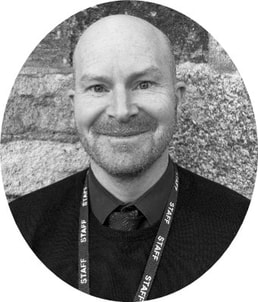
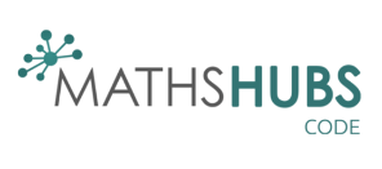
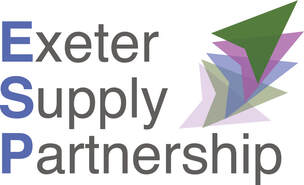
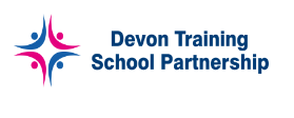

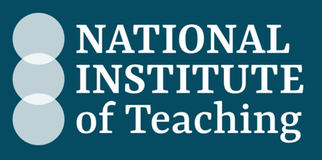

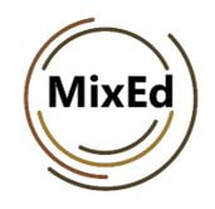

 RSS Feed
RSS Feed





